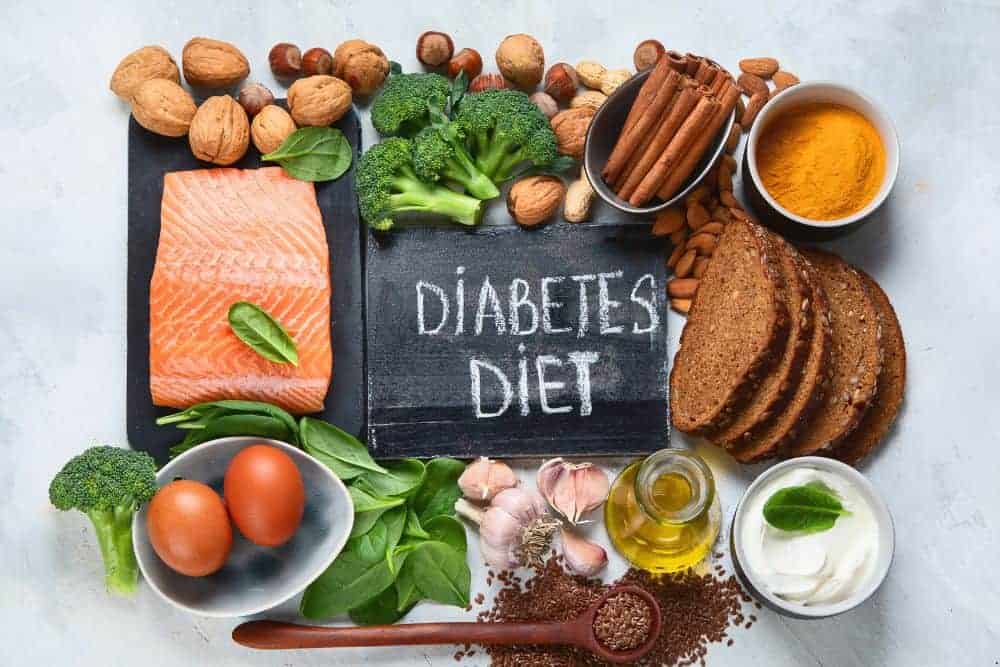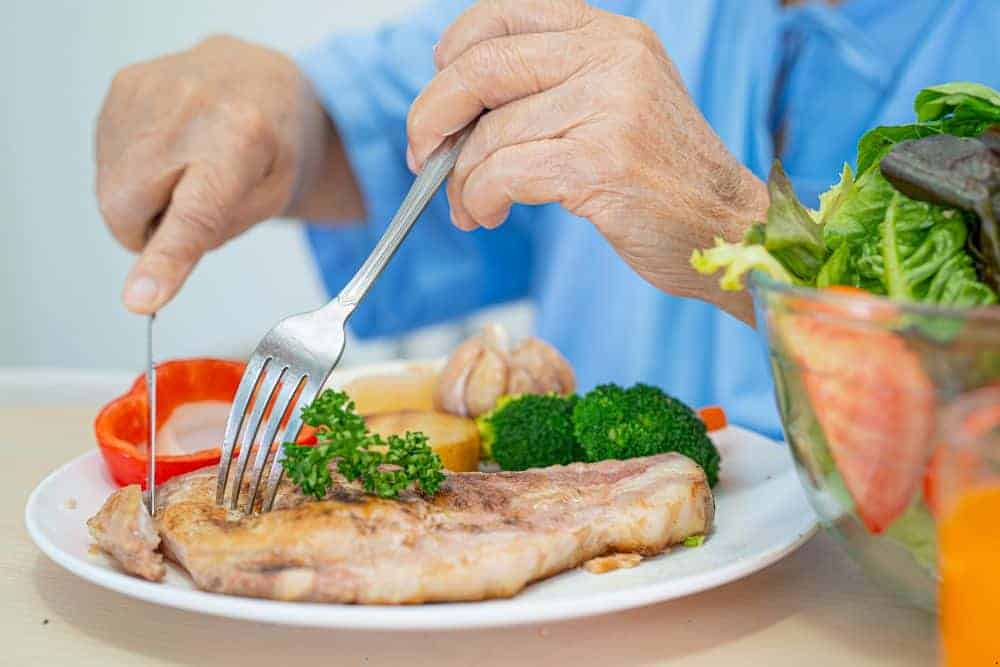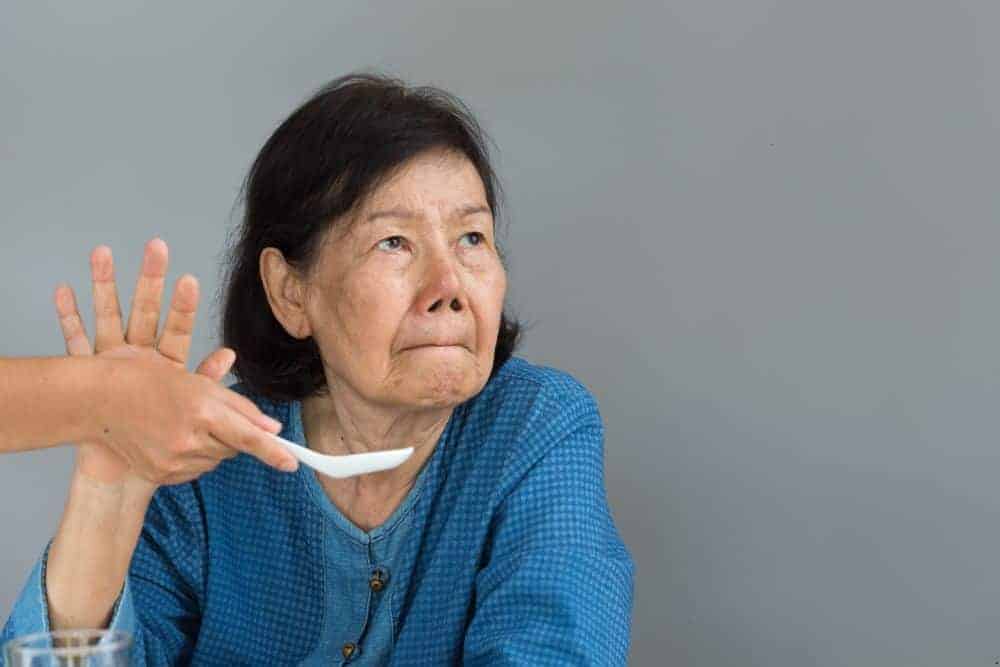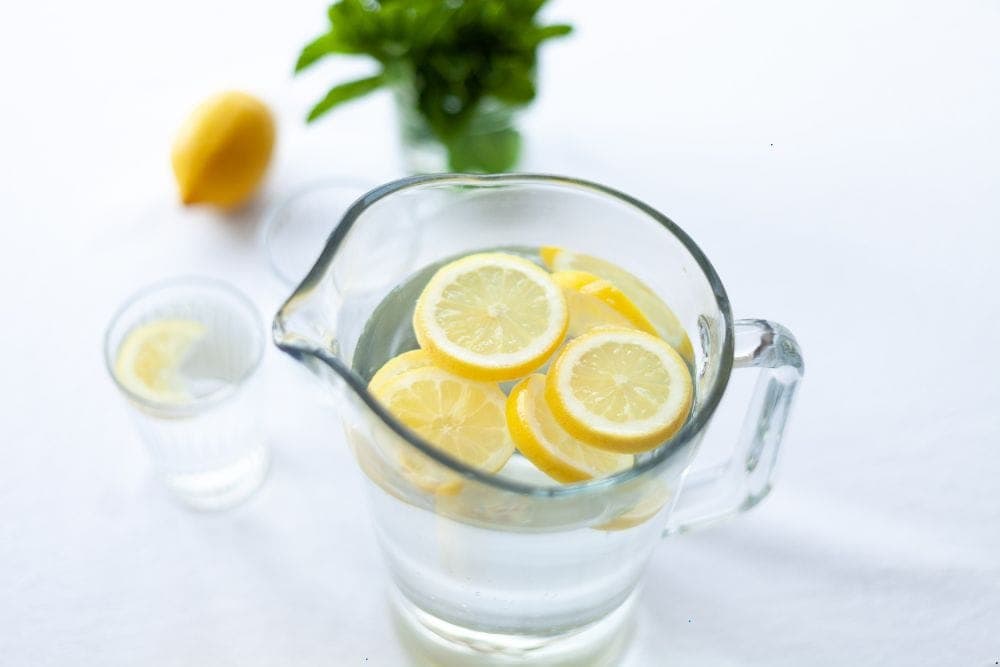
Caring for an elderly loved one involves many decisions, and one of the most important is ensuring they have the right diet.
The process of aging changes your body as well as your nutritional needs. What might have worked for your loved one in their younger years may no longer be the best fit. So, choosing the right diet can make a difference in improving their energy, health, and overall quality of life.
But where do you start? With so many options out there, it can feel overwhelming. That’s why we’ve put together this easy-to-follow guide. Keep reading to explore five of the best diets tailored to meet the unique needs of seniors.
Why is a healthy diet important for seniors?

Aging causes degenerative changes in the body that require older adults to change their lifestyle, especially their diet to navigate these changes. A healthy diet helps the body slow down these degenerative changes and stay healthy and independent.
Here are five common benefits of a proper, healthy diet for the elderly:
Strengthens the Immune System
As people grow old, the immune system naturally weakens and makes them more susceptible to infections, colds, and illnesses. A diet rich in immune-boosting nutrients like vitamin C, zinc, and antioxidants helps combat this decline.
Foods such as oranges, bell peppers, nuts, and green tea can enhance the body’s ability to fend off pathogens and reduce the duration of illnesses when they occur. This strengthened immunity means fewer sick days for your loved ones and a more resilient body overall.
Preserves Bone and Joint Health
Bone density also decreases with age, increasing the risk of fractures and osteoporosis. A healthy diet packed with calcium, vitamin D, and magnesium is essential for maintaining strong bones.
Dairy products, fortified plant-based milks, leafy greens, and almonds are excellent sources of these nutrients. Moreover, foods like fatty fish and turmeric have anti-inflammatory properties. These can ease joint pain associated with conditions like arthritis, promote better mobility, and reduce discomfort.
Supports Heart Health
Heart disease is a leading concern among older adults, but a heart-healthy diet can lower the risks significantly. Whole grains, lean proteins, healthy fats (like those in avocados and olive oil), and foods high in omega-3 fatty acids (such as salmon and walnuts) are key to maintaining healthy cholesterol levels and blood pressure.
When you reduce sodium and trans fats in your loved one’s diet, it also protects them against heart attacks and strokes.
Boosts Cognitive Function
Proper nutrition isn’t just for the body. It’s for the mind too. Seniors who consume brain-healthy nutrients like Omega-3 fatty acids, B vitamins, and antioxidants, experience improved memory, focus, and overall cognitive health.
Foods like fatty fish, blueberries, leafy greens, and nuts have been shown to protect against age-related cognitive decline. These foods may even reduce the risk of Alzheimer’s disease. This mental clarity ultimately enhances their independence and quality of life.
Improves Energy and Prevents Fatigue
Many seniors struggle with low energy which affects their ability to enjoy daily activities. A well-balanced diet that includes complex carbohydrates (such as quinoa and oats), high-quality proteins, and healthy fats provides sustained energy throughout the day.
Unlike sugary snacks, which can cause quick spikes and crashes in blood sugar, these nutrient-dense foods keep energy levels stable, reducing feelings of fatigue and helping seniors stay active and engaged.
Factors To Consider While Choosing A Diet For The Elderly

Selecting the right diet for seniors isn’t just about keeping them full. It’s about supporting their needs, boosting their energy, and improving their quality of life.
Here are some key factors you should keep in mind while choosing a diet for your loved ones:
Health Conditions and Nutritional Needs
Many seniors live with chronic health conditions like diabetes, heart disease, or arthritis. These conditions often require specific dietary adjustments. For example, low-sodium diets are great for heart health, while diabetics may need low-sugar and low-carb options. It’s always a good idea to consult with their doctor or nutritionist to address specific health needs.
Caloric Intake
The body’s metabolism also slows down with aging. This means seniors typically need fewer calories than younger adults. However, cutting calories shouldn’t mean cutting nutrition. A diet rich in vitamins, minerals, and essential nutrients is essential to stay healthy and maintain energy levels.
Ease of Preparation
Not all seniors can cook for themselves, and caregivers might have limited time. Even family carers are not always available or handy with cooking. Choosing diets that include simple, easy-to-prepare meals makes life easier for everyone. Pre-planned meal options or recipes that don’t require a lot of chopping and cooking can be a great help for you and your elderly loved ones.
Digestive Health
Aging makes digestion slower and less efficient. Many seniors experience issues like constipation or acid reflux. You need to go for diets that are high in fiber, include plenty of water, and avoid overly spicy or acidic foods to help keep your digestive system in check.
Food Preferences and Cultural Background
Food is personal, and it’s important to honor your elderly’s preferences, cultural background, and lifelong habits. Whether they have personal favorite flavors, traditional dishes, or specific ingredients they love, incorporating these can make their diet more enjoyable and sustainable.
Common Health Issues In Seniors And Dietary Management

Seniors often face specific health challenges that require specific dietary modifications to effectively manage them. Let’s take a closer look at some of the most common health issues older adults face and what dietary changes are required to deal with them.
Heart Disease
Heart disease is a significant concern among seniors. It is often linked to high blood pressure, high cholesterol, or other cardiovascular issues.
A diet rich in fruits, vegetables, whole grains, and lean protein can help maintain heart health. Healthy fats from sources like nuts, seeds, and fish further support cardiovascular wellness.
On the other hand, it’s important to limit saturated fats, trans fats, and sodium, as these can put extra strain on the heart. Preparing meals at home is a great way to control salt and fat levels. Also, don’t forget to encourage regular hydration with water while avoiding sugary beverages.
Diabetes
You need to pay extra attention to diet when managing diabetes in older adults. Adding more low-glycemic foods like whole grains, legumes, and leafy greens into meals helps keep sugar levels stable.
Encourage small, balanced meals throughout the day rather than large, heavy ones to avoid blood sugar spikes.
Processed foods and sugary snacks should be limited, but you can replace them with healthier alternatives such as nuts, seeds, or fresh fruits. These small changes can make a big difference in managing diabetes effectively.
Bone Health (Osteoporosis)
Osteoporosis and weakened bones are common as seniors age, increasing the risk of fractures. Your elderly loved ones need to get enough calcium and vitamin D to support their bone strength.
Dairy products, fortified plant-based milk, leafy greens, and fatty fish like salmon are excellent sources of Calcium and Vitamin D.
Alongside a nutritious diet, encourage seniors to engage in weight-bearing exercises to help strengthen their bones. It’s also wise to reduce their intake of caffeine and alcohol, as these can interfere with calcium absorption.
Digestive Problems
Digestive issues like constipation and acid reflux become more frequent with age due to slower digestion. To address these, focus on adding fiber-rich foods such as whole grains, fruits, and vegetables into their diet. Proper hydration is equally important to keep digestion running smoothly.
If acid reflux is a concern, it’s best to avoid spicy or fried foods and go for smaller, more frequent meals instead of large ones. These adjustments can greatly improve your loved one’s digestive comfort.
Cognitive Decline (Dementia, Alzheimer’s)
Cognitive decline, including memory issues or conditions like dementia, is another concern for older adults. The Mediterranean or MIND diet has shown promise in supporting brain health. Foods like berries, nuts, olive oil, and fatty fish are good sources of nutrients needed for cognitive support.
Antioxidant-rich options like spinach, blueberries, and turmeric are also beneficial as they help fight inflammation and oxidative stress. You need to limit processed and sugary foods as they negatively affect brain health over time.
5 Types Of Diets For Seniors

The right type of diet can make a big difference in managing a health condition or simply staying active. Here are five types of diets for seniors to consider that can meet their unique requirements.
Mediterranean Diet
The Mediterranean diet emphasizes fresh, whole foods like vegetables, fruits, whole grains, healthy fats (such as olive oil), and lean proteins, including fish and poultry. It’s widely praised for its ability to reduce the risk of heart disease, stroke, and cognitive decline.
This diet is ideal for seniors who enjoy a variety of flavorful meals, as it adds a wide range of ingredients to the meals without feeling restrictive. It also promotes healthy aging by reducing inflammation and supporting brain health.
Meals like grilled fish with roasted vegetables or a hearty Greek salad with olive oil and feta cheese are both delicious and nutritious examples.
DASH Diet
DASH, or Dietary Approaches to Stop Hypertension, is specifically designed to help manage high blood pressure. It is also known as a ‘healthy heart diet’ and a ‘low-sodium diet’.
This diet encourages reducing sodium intake and increasing foods rich in potassium, magnesium, and calcium, such as fruits, vegetables, low-fat dairy, and whole grains.
For seniors, the DASH diet not only helps lower blood pressure but also improves overall heart health. It’s easy to follow and doesn’t eliminate entire food groups, making it sustainable over time. It includes meals like a turkey sandwich on whole-grain bread with a side of fresh fruit or a chicken salad with no salt.
Plant-Based Diet
A plant-based diet emphasizes vegetables, fruits, legumes, nuts, seeds, and whole grains while minimizing or eliminating animal products. It’s rich in fiber, antioxidants, and essential nutrients.
This makes it an excellent choice for seniors who are looking to improve digestion, lower cholesterol, and reduce the risk of chronic diseases like diabetes and heart disease.
Seniors following this diet should ensure they get enough protein and critical nutrients like vitamin B12, which might require supplements. Meals such as lentil soup with a side of quinoa and roasted vegetables provide balanced nutrition and are easy to prepare.
Diabetic Diet
A diet focused on stabilizing blood sugar levels is essential for seniors with diabetes. This involves prioritizing low-glycemic foods like whole grains, non-starchy vegetables, lean proteins, and healthy fats. It also limits sugary snacks, refined carbohydrates, and unhealthy fats that can lead to blood sugar spikes.
The diabetic diet supports balanced energy levels and prevents complications like nerve damage or heart disease. Meals like baked salmon with sweet potato and sautéed greens provide a mix of nutrients to keep blood sugar steady.
It’s important to include consistent portion sizes and pair carbohydrates with protein or fat for better blood sugar control.
Soft or Pureed Diet
A soft or pureed diet is often necessary for seniors who have difficulty chewing or swallowing due to medical conditions or dental issues. This diet ensures they receive the nutrients they need in a form that’s easy to eat and digest.
Foods typically include
- Pureed soups
- Mashed potatoes
- Smoothies
- Soft fruits like bananas
- Well-cooked vegetables
It’s important to provide a variety of options to prevent monotony and ensure adequate nutrition. For example, a pureed carrot and ginger soup paired with applesauce and a protein shake offers a balanced meal in an easy-to-consume form.
Personalizing Diets for Seniors

When it comes to nutrition for your elderly loved ones, there’s no one-size-fits-all solution. Seniors have unique dietary needs that can vary based on factors like age, activity level, and overall health. Personalizing their diet is key to ensuring they stay healthy, energized, and enjoy a better quality of life.
Why Seniors Have Unique Dietary Needs
As we age, our bodies go through changes that affect how we process and use nutrients. For example:
- Metabolism gets slower. Seniors tend to burn fewer calories, so portion sizes and meal frequency may need to be adjusted.
- Appetite changes. Medications, health conditions, or reduced taste and smell can impact how much and what they want to eat.
- Nutrient deficiencies develop in the body. Older adults may need more of certain nutrients like calcium, vitamin D, B12, iron, and protein while consuming less sodium and added sugars.
Activity level also plays a big role. If your loved one is active, they may require more calories and carbohydrates for energy, while someone less mobile may need fewer calories to avoid weight gain.
Creating a Personalized Meal Plan
Here’s how you can create a tailored diet plan for your elderly loved one:
- Consider Their Health Conditions:
Chronic conditions like diabetes, hypertension, or heart disease require specific dietary adjustments. For example, low-sodium diets benefit those with high blood pressure, while high-fiber foods are great for diabetes management. - Focus on Nutrient Density:
Choose foods that are rich in nutrients but low in empty calories. Whole grains, lean proteins, fruits, vegetables, and healthy fats should be the foundation of their diet. - Choose Foods They Enjoy:
Eating should be a pleasurable experience. They shouldn’t feel forced while having it. Find ways to include their favorite flavors while keeping meals healthy. - Plan Balanced Meals:
Each meal should ideally include essential nutrients like protein, fiber, healthy carbohydrates, and vitamins. - Stay Hydrated:
Dehydration is common among seniors. Encourage water, herbal teas, or low-sugar beverages like diluted fruit juices to keep them hydrated. - Adjust Based on Their Preferences:
If your loved one has difficulty chewing or swallowing, opt for softer foods or smoothies. If they prefer smaller meals or don’t like stuffing themselves at once, serve smaller nutrient-packed snacks throughout the day.

Importance of Professional Guidance
Every senior’s health journey is unique. Consulting with a healthcare provider, a dietitian, or a nutritionist can make a significant difference. A professional can assess your loved one’s specific needs, identify any potential food-drug interactions, and provide a detailed meal plan tailored to their requirements. This personalized guidance will help you make sure that the diet is not only healthy but also safe and effective.
Small Steps, Big Impact
Personalizing a diet doesn’t have to mean drastic changes overnight. Starting with small, manageable adjustments can make the process easier for both you and your loved one. Swap out processed snacks for fresh fruits or replace sugary drinks with water infused with citrus or berries. These simple changes can have a significant impact over time.
How to Address Challenges in Planning Senior Diets

Many challenges come with aging, from physical changes to lifestyle adjustments. These challenges make sticking to a nutritious diet harder than it sounds. Let’s take a closer look at some of the most common obstacles and how you can help your loved ones overcome them.
Decreased Appetite
It’s not uncommon for seniors to eat less than they used to. This could be due to a slower metabolism, less physical activity, or even medications that affect hunger.
Sometimes, eating can feel like a chore when food just doesn’t seem appealing anymore. For caregivers, this can be a real worry. How do you make sure your loved one is getting enough nutrition if they don’t feel like eating?
What can you do?
- Serve smaller meals throughout the day. Eating three big meals might feel overwhelming, but snacking on healthy options can be much easier.
- Try foods that are packed with nutrients but don’t take up much space, like eggs, avocados, or nut butter. This way, even if they eat less, they’re still getting the good stuff.
- Spice up their plate. Not just with spices, but with variety. Think colorful fruits, veggies, or a mix of textures. A boring plate is never inviting.
- Make meals social. Sitting down together can make a big difference. A shared meal is often a more enjoyable one.
Changes in Taste and Smell
Over time, it’s common for the senses of taste and smell to fade. Sometimes, food might taste bland or different than it used to. For seniors, this can be frustrating and lead to disinterest in eating. On top of that, certain medications can make food taste metallic or odd.
What can you do?
- Boost flavor naturally with herbs and spices. You can experiment with basil, oregano, or even cinnamon to make meals more exciting without adding too much salt or sugar.
- Texture matters, too. If your loved one doesn’t enjoy certain foods anymore, maybe it’s the crunch or softness that needs adjusting. Soups, stews, or blended smoothies could be a hit.
- Presentation is key. A vibrant, colorful plate can catch their eye and make the meal more appealing.
- Involve them in the meal planning process. Asking what they’d like to eat gives them some control and ensures you’re offering something they enjoy.
Limited Mobility
Physical limitations can make a simple task like cooking or even eating feel exhausting. Conditions like arthritis, limited strength, or reduced coordination can make holding utensils or standing for long periods difficult. Grocery shopping may also be too much of a challenge.
What can you do?
- Opt for convenience foods that don’t sacrifice nutrition like pre-cut veggies, pre-cooked grains, or frozen healthy meal options.
- Adaptive utensils and tools can make a big difference. Special grips, plate guards, or lightweight cookware can make the kitchen more accessible.
- Meal delivery services are an excellent solution if grocery shopping or cooking becomes too hard. Look for ones that cater specifically to seniors.
- Don’t be afraid to ask for help. Whether it’s family members, friends, or hiring a caregiver, teamwork can ease the burden.

Staying Hydrated
Hydration can be an easy thing to overlook, especially for seniors who may not feel thirsty as often. Dehydration can lead to fatigue, confusion, or even more severe health issues. For many elderly loved ones, simply drinking enough water feels like a struggle.
What can you do?
- Encourage water-rich foods like cucumbers, watermelon, or soups. These can boost hydration without needing to drink plain water.
- Keep a bottle of water nearby at all times. A small sip here and there adds up.
- If plain water isn’t enticing, flavor it with a splash of fruit juice, lemon slices, or fresh mint.
- Offer drinks regularly throughout the day, especially if they tend to forget or don’t notice when they’re thirsty.
Making Nutrient-Dense Choices
When your loved one isn’t eating as much, every bite matters. Choosing foods that are both tasty and packed with nutrition can feel like a balancing act. Empty-calorie foods like chips or cookies might be easy to grab, but they don’t provide the nutrients seniors need to thrive.
What can you do?
- Swap out less nutritious options for wholesome ones. Whole grains, lean proteins, and healthy fats should take priority over sugary snacks.
- Look for fortified foods like vitamin-enriched milk, juices, or cereals. These can help fill any nutrient gaps.
- Protein is especially important. Include items like eggs, cheese, or Greek yogurt as snacks. They’re easy to eat and full of benefits.
- Don’t forget about calcium and vitamin D for bone health. Include dairy, leafy greens, and fish to support strong bones.
Conclusion
Choosing the right diet for your elderly loved one is all about understanding their unique needs and preferences. From heart-healthy plans to nutrient-packed vegetarian diets, there’s something out there to support every senior’s well-being. Remember, the key is finding a balance that promotes health and happiness.
At Amy’s Eden Senior Care, we know how important it is for your loved ones to feel cared for in every way, especially when it comes to their meals. We are dedicated to providing personalized care, including delicious, nutritious meals tailored to meet the needs of your loved ones. Contact us today to learn how we can help your loved one enjoy a healthier, happier lifestyle!




